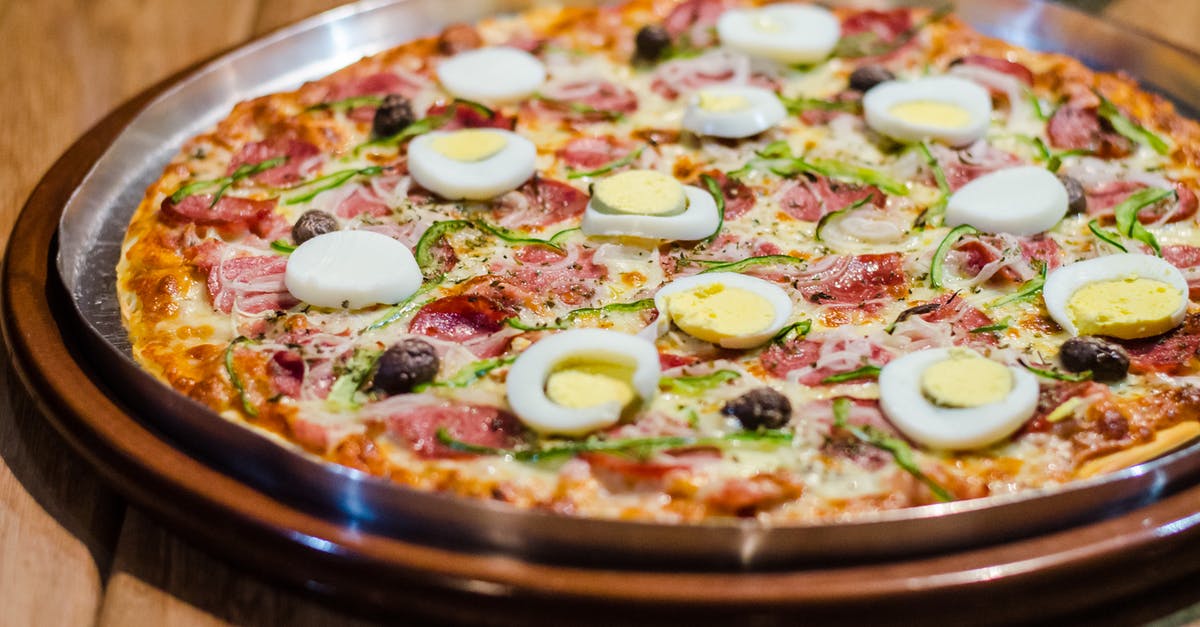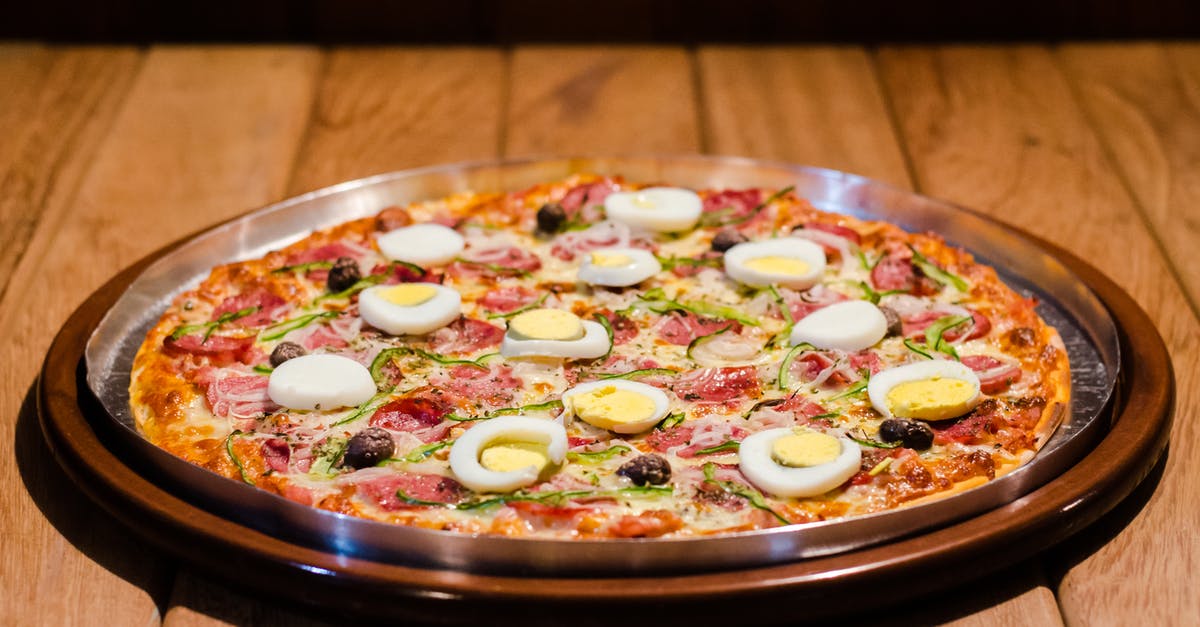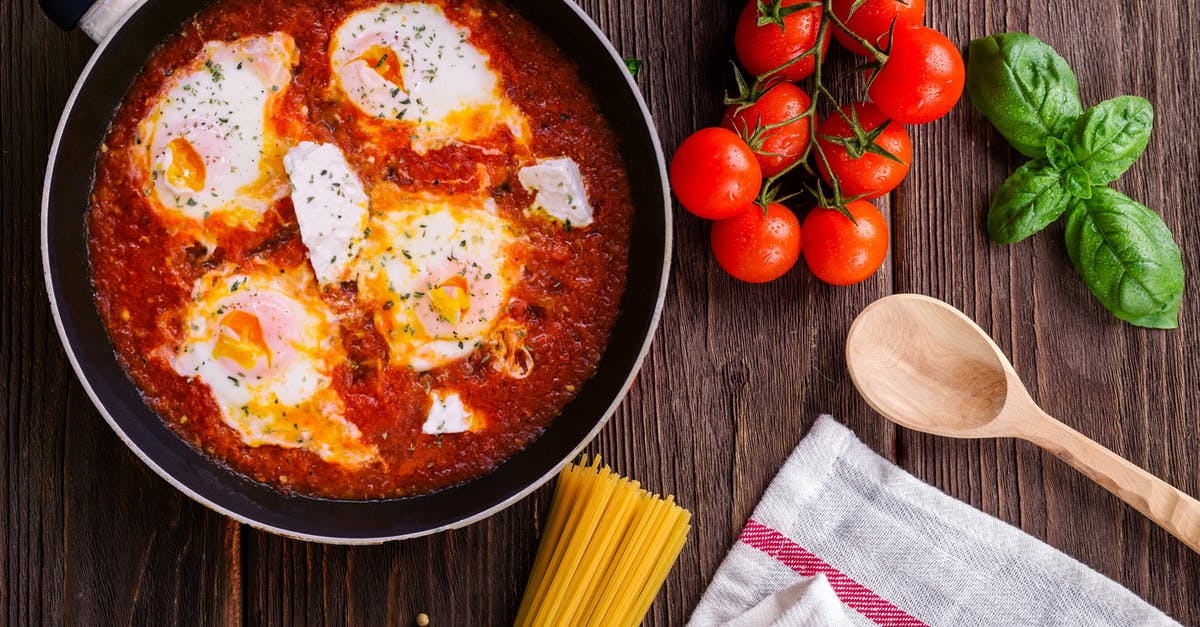Why does cooking fewer eggs require more water/steam?

I have purchased a Nutri-Q 34360 Healthy Eating Egg Boiler:
How does it work? - The eggs are cooked through hot steam. The instructions will guide you on the amount of water that is required depending on the quantity of eggs.
It comes with a little measuring cylinder for the amount of water to add which has gradations that look something like:
Hard boiled
- 1
- 2
- 3
- 4
- 5
- 6/7
Medium
- 1
- 2
- 3
- 4
- 5
- 6/7
Soft
- 1
- 2
- 3
- 4
- 5
- 6/7
I understand why more water is required to hard boil eggs compared to medium cooked eggs (they need to be cooked longer).
However, I don't understand the gradations within each range (the number of eggs to be cooked).
Why does, for example, cooking 1 medium egg require more steam than cooking 3 medium eggs? Surely it should be the other way around?
Can someone enlighten me?
Photo of the parts:
Best Answer
These egg cookers work by simply heating the water until it all evaporates. Most cookers sense when all the water is evaporated, and automatically turn off and/or alerting with a beep or noise. They have a sensor under the hot plate that detects temperature. When water is still in the pan, it keeps the pan cool, and when water evaporates completely the pan bottom will start to get hotter.
The water is heated in the pan in the bottom, works it way past the eggs, and eventually out the holes in the lid.
So why more water for fewer eggs?
The tray that holds the eggs has a bunch of holes in it. Each egg cup has a hole in the bottom so that the steam has direct contact with the bottom of the egg. When the tray is full, it reduces the number of outlets and traps more steam under the tray. Similar to putting a lid on a pot, this reduces the speed of evaporation.
With only one egg blocking one hole, the steam can escape more readily out from the bottom of the tray to the top, and steam will escape out into the room more quickly.
To compensate for the fact that steam is escaping the egg cooker slightly faster when there are fewer eggs, you use slightly more water when there are fewer eggs.
A fun experiment
You could use eggs (or a heat proof substitute... Maybe something ping pong ball or golf ball sized (but not ping pong balls--they melt at 80°C)) to block off the "egg holes" and collect a series of timings for how long it takes for all the water to evaporate as you vary the number of eggs & water.
You should find that when you follow package directions, the timing of the cycle is approximately the same.
Similarly, if you use only one egg, and the "6/7 egg" water amount, you'll find the cycle (and complete water evaporation) faster than the full "1 egg" water amount. Again, this is just because there's an easier path for the steam to escape.
Pictures about "Why does cooking fewer eggs require more water/steam?"



Quick Answer about "Why does cooking fewer eggs require more water/steam?"
Egg boiling machines are designed to cook eggs that have only a small part submerged in the water. To ensure that the same volume is submerged regardless of the number of eggs, you need to add more water as you reduce the number of eggs. This is because of displacement rather than thermodynamics.How much water do you use to steam an egg?
Fill Egg Cooker base to correct water level, pouring from a small pitcher or measuring cup. DO NOT HOLD UNDER TAP TO FILL. For soft-cooked eggs fill to first step in \u201cwell\u201d (about 2 tablespoons or 30 ml). For medium-cooked or poached eggs, fill to second step in \u201cwell\u201d (about 3 tablespoons or 45 ml).Is steaming eggs better than boiling?
You can have hard-steamed eggs and soft-steamed eggs, much like you can have hard-boiled eggs and soft-boiled eggs; however, compared to a boiled egg, the steamed version is more tender, with a creamier yolk, and is easier to peel.Why do you add eggs to boiling water instead of cold water when cooking them?
When you drop an egg in boiling water, you heat it up quickly. When you start with cold water, you heat it slowly. And the difference in heating makes a difference in the cooked egg white.Is steaming eggs better?
With steamed eggs, contact with ultra-hot water vapor heats the egg in the same way that boiling water or a hot cast-iron pan would. The only difference is that steam will cook your egg more gently, resulting in a more tender egg white and creamier yolk.Steamed Eggs vs Boiled Eggs ...which is better?
More answers regarding why does cooking fewer eggs require more water/steam?
Answer 2
The volume of space within the container (that must be filled with steam) is less with 6 eggs (258 ml) than with 1 egg (43 ml).
Therefore you must produce more steam (thus need more water) for 1 egg than for 6 eggs to have the same effect.
Sample:
The container, after the water and egg holder, has a volume of 500ml.
Each egg has a volume of 50 ml.
For 1 egg, 450ml of steam is needed (50+450=500ml)
For 3 eggs, 350ml of steam is needed (150+350=500ml)
For 6 eggs, 200ml of steam is needed (300+200=500ml)
The water needed for 200ml of steam (for 6 eggs) is less than the water needed for 450ml of steam (for 1 egg).
Sources: Stack Exchange - This article follows the attribution requirements of Stack Exchange and is licensed under CC BY-SA 3.0.
Images: Pablo Macedo, Pablo Macedo, Jess Bailey Designs, Dana Tentis

